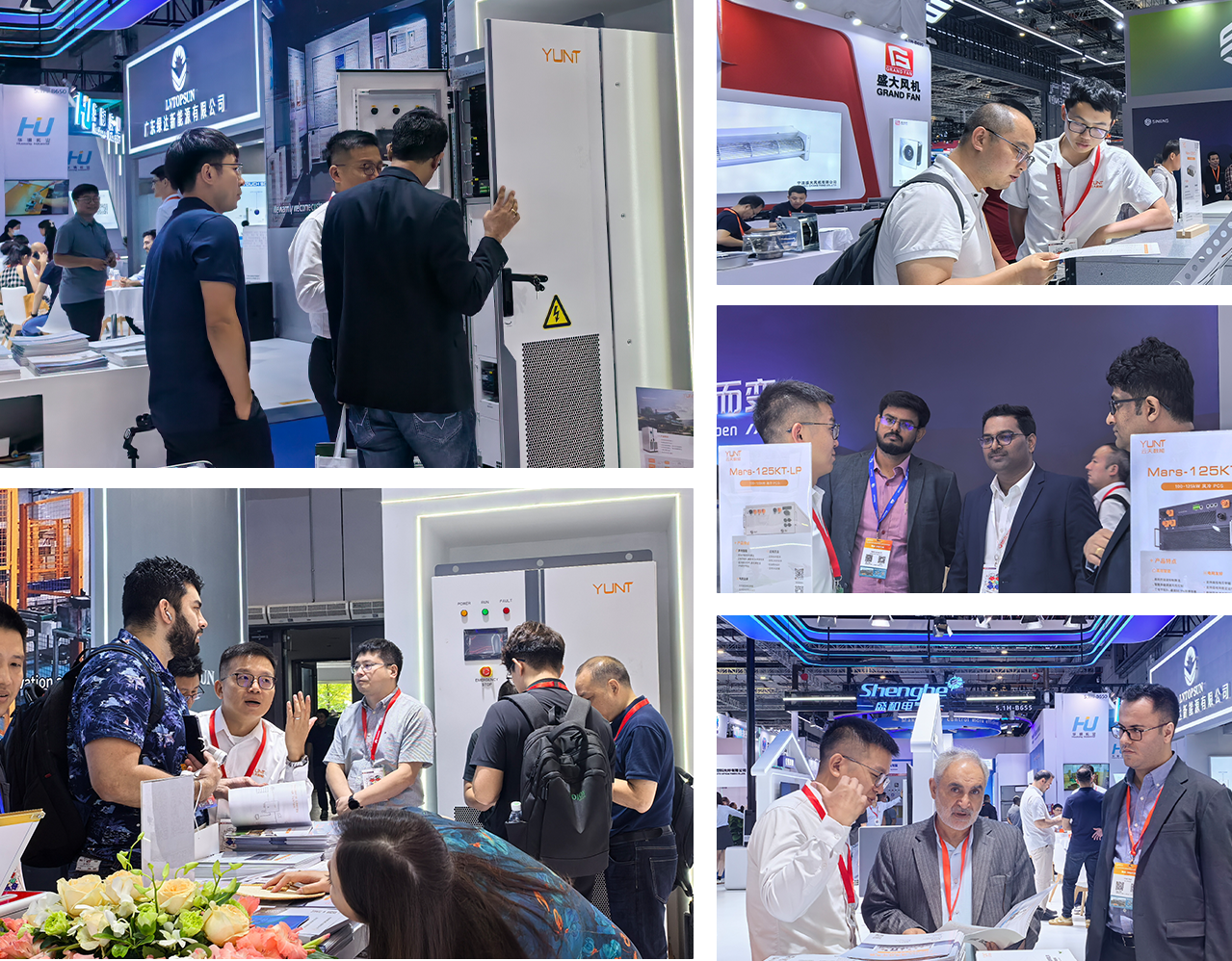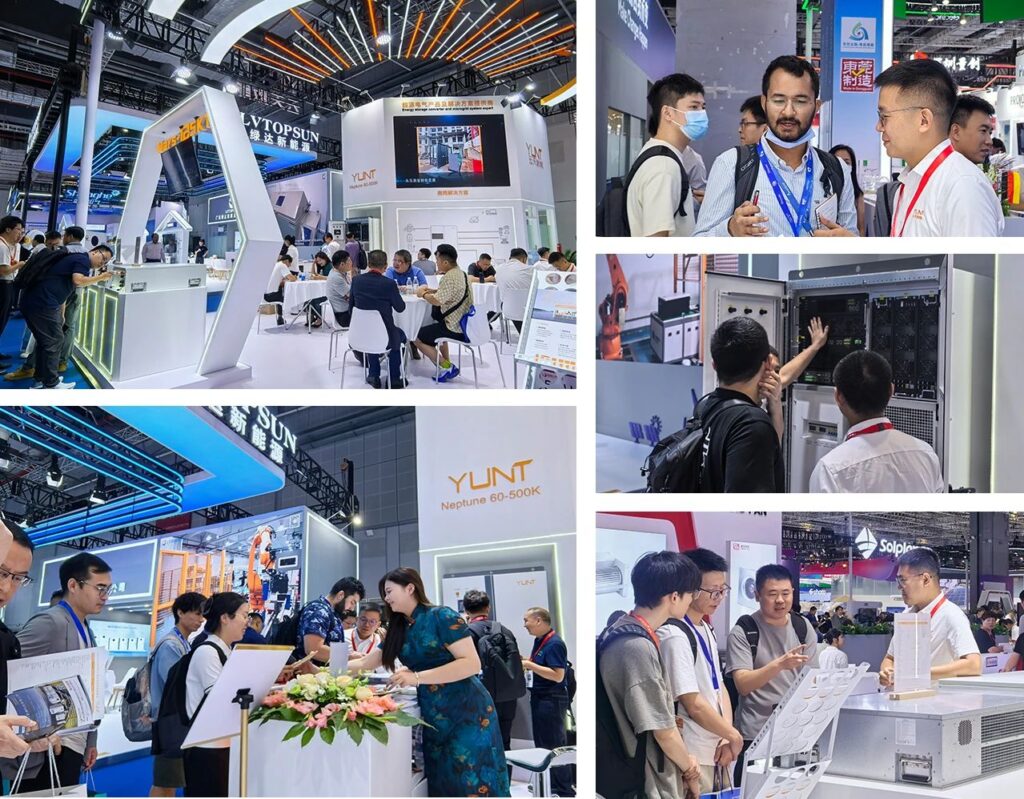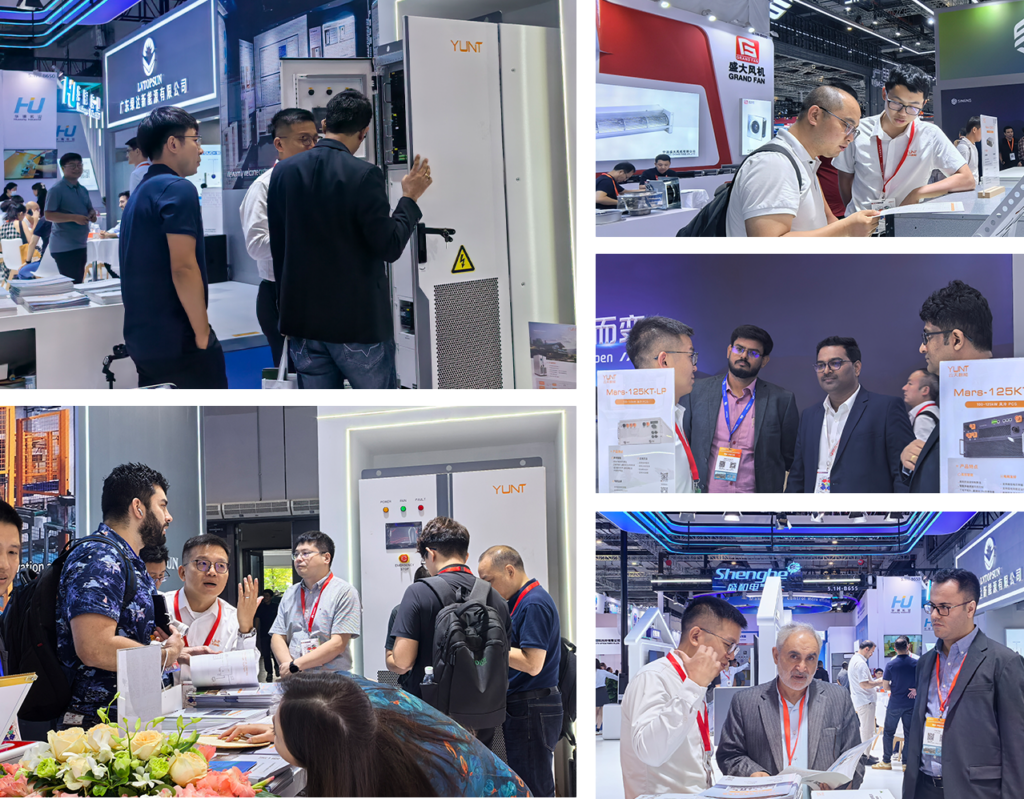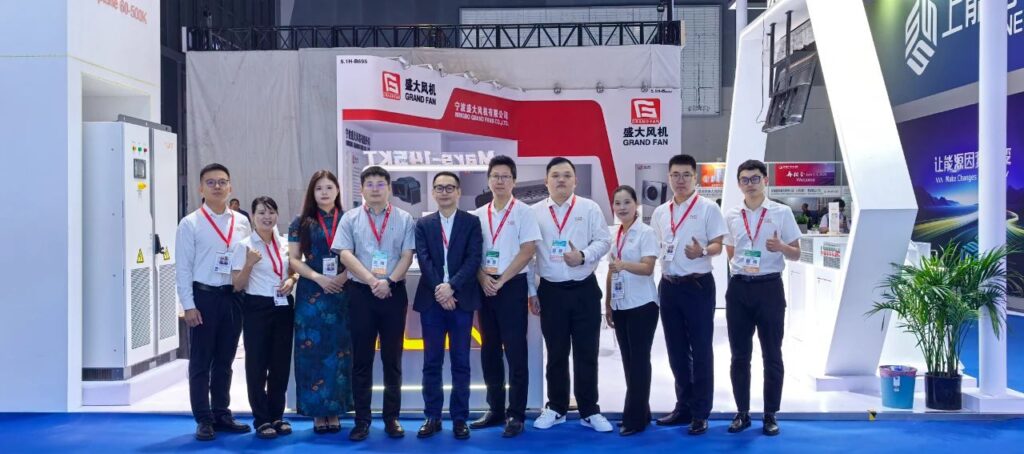On June 11, 2025, the 18th SNEC 2025 International Photovoltaic and Energy Storage Conference grandly opened at the Shanghai International Expo Center. YUNT made a high-profile debut with its Neptune Series Hybrid Inverter Integrated Solution and a full range of 30–225kW Power Conversion Systems (PCS), showcasing its core technologies and innovative achievements in the fields of energy storage and microgrids.
Driven by the “dual carbon” goals, the rapid integration of renewable energy is reshaping the power landscape and bringing new challenges to the grid. As energy systems transition toward distributed and intelligent architectures, microgrids—known for their local autonomy and flexible control—have become key to addressing issues such as renewable energy intermittency and seamless grid connection or disconnection.
In response, YUNT has launched a forward-looking, all-in-one solution featuring a “modular standard cabinet + battery cluster control” architecture. Backed by strong engineering customization capabilities and deep expertise in power electronics, this solution enables the rapid deployment of intelligent microgrid systems across diverse application scenarios. It accelerates project implementation for customers while advancing the industry toward a new era of high safety, high efficiency, and intelligent energy development.
At this year’s exhibition, YUNT is spotlighting its Neptune Series Microgrid Energy Cabinet, with power ratings of 125kW, 250kW, 375kW, and 500kW. Purpose-built for multi-energy microgrid systems, the Neptune Series breaks through traditional system architecture limitations by supporting the integration of diverse energy sources including photovoltaics, batteries, diesel generators, and the grid—enabling system-level energy coordination and control. On the battery side, it supports battery cluster-level management, effectively mitigating internal circulation issues among multiple battery groups.
Each Neptune cabinet allows for easy system power expansion through simple multi-unit parallel operation, scaling from 1MW to 2MW, and is fully adaptable to a wide range of commercial and industrial microgrid application scenarios.
Furthermore, the solution leverages a “modular standard cabinet” design for engineering customization, enabling rapid deployment of intelligent microgrid systems tailored to specific customer needs—significantly improving delivery efficiency and system maintainability.
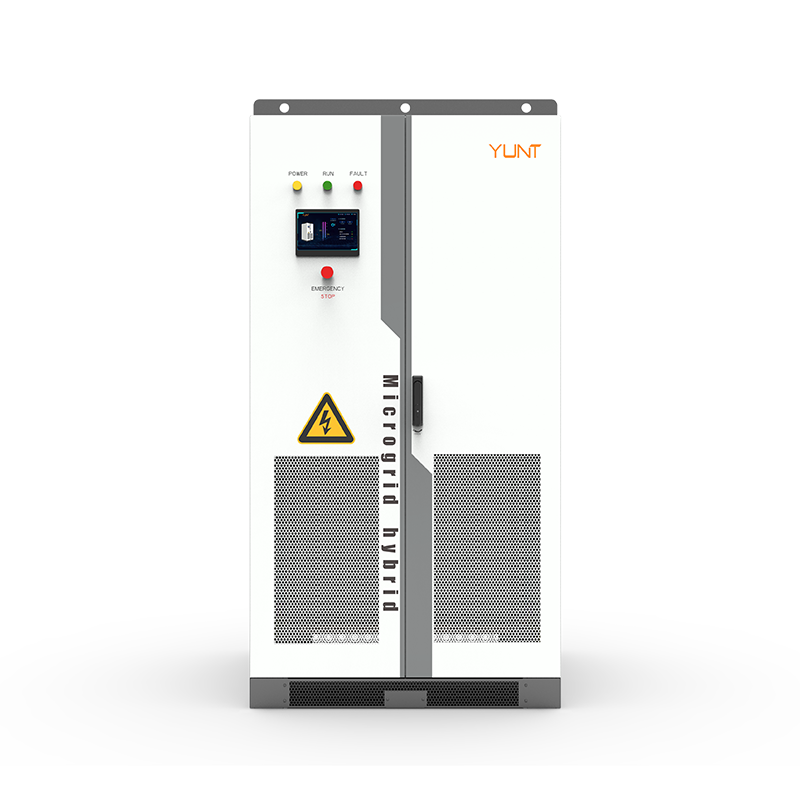
As the core of the system, the Neptune Series Microgrid Hybrid Inverter is meticulously engineered to deliver superior performance and exceptional adaptability across various application scenarios. Its main advantages include:
0ms seamless grid-connected/off-grid switching, ensuring continuous and stable operation of emergency backup loads;
DC-coupled design for PV and batteries, improving PV generation efficiency while enhancing overall system stability;
Modular PCS architecture supporting battery cluster-level input, which helps optimize battery performance and extend lifespan;
Active support for diesel generator voltage and frequency regulation during sudden load changes, ensuring reliable power delivery;
Built-in isolation transformer, enhancing system stability and electrical safety;
Standardized system design, significantly improving integration efficiency;
Modular components, greatly enhancing operation and maintenance efficiency.
Featuring full-system IP54 protection, the entire series is outdoor-ready right out of the factory—no additional protective enclosure needed, unlike IP20 devices. Built to withstand harsh environments including rain, humidity, and dust, it saves time, hassle, and cost, delivering true plug-and-play convenience for outdoor deployment.
